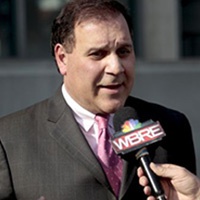Fleetville White Collar Crime Lawyer, Pennsylvania
Sponsored Law Firm
-
 x
x

Click For More Info:
-
The Law Offices of Richard L. Cooper, P.A.
848 Brickell Avenue Suite 800 Miami, FL 33131» view mapDWI/DUI, Drug Trafficking, Felony Nationally Ranked Top 40 Under 40
With Richard L. Cooper you can expect a trusted confidant who will work diligently to fully understand your case and determine a road map to help you regain control of your life.
800-756-2781
Not enough matches for Fleetville White Collar Crime lawyer.
Below are all Fleetville Criminal lawyers.
Joseph S. Toczydlowski
✓ VERIFIEDJoseph S. Toczydlowski is a Pennsylvania attorney with 20 years of experience. Joseph is a graduate of Scranton Prep. He obtained a Bachelor of Sc... (more)
Joseph R. D'Andrea
✓ VERIFIEDOver the past 30 years, Joe D’Andrea has earned a reputation as one of the premier criminal defense attorneys in Northeastern Pennsylvania, while ag... (more)
Christian W. Francis
✓ VERIFIEDChristian W. Francis is a trial lawyer serving Northeast Pennsylvania and the surrounding region. His practice is focused on representing individuals ... (more)

 Richard L. Cooper Miami, FL
Richard L. Cooper Miami, FL AboutMiami Attorney at Law
AboutMiami Attorney at Law ServicesCriminal Defense
ServicesCriminal Defense



